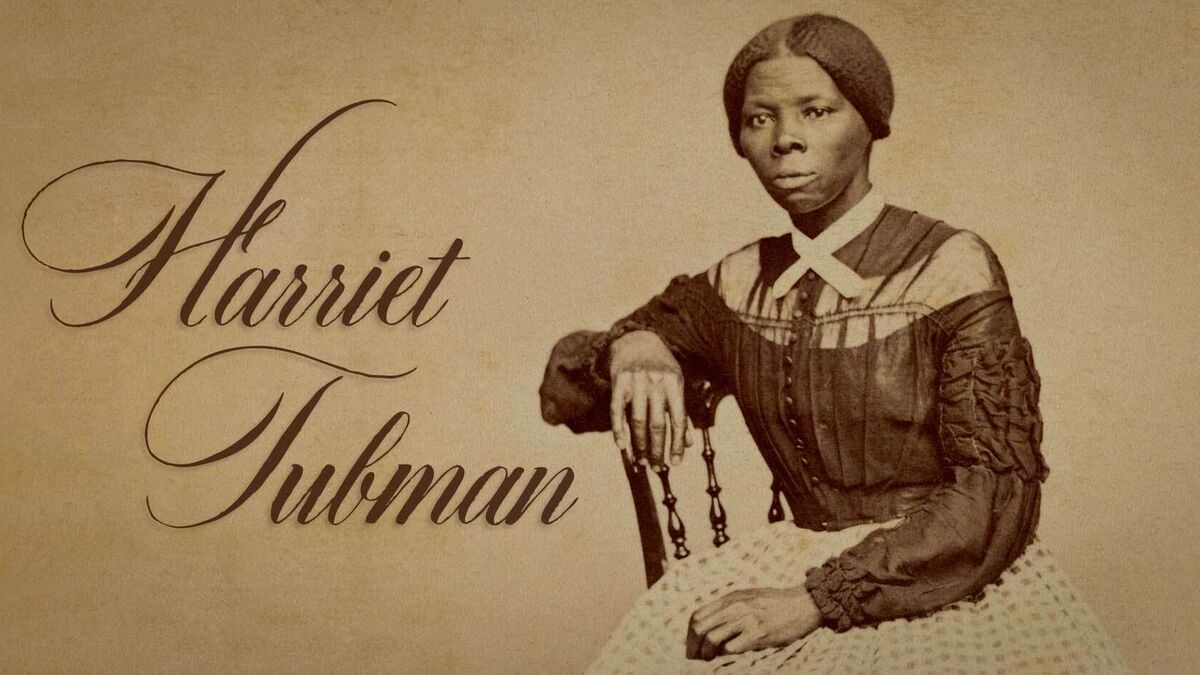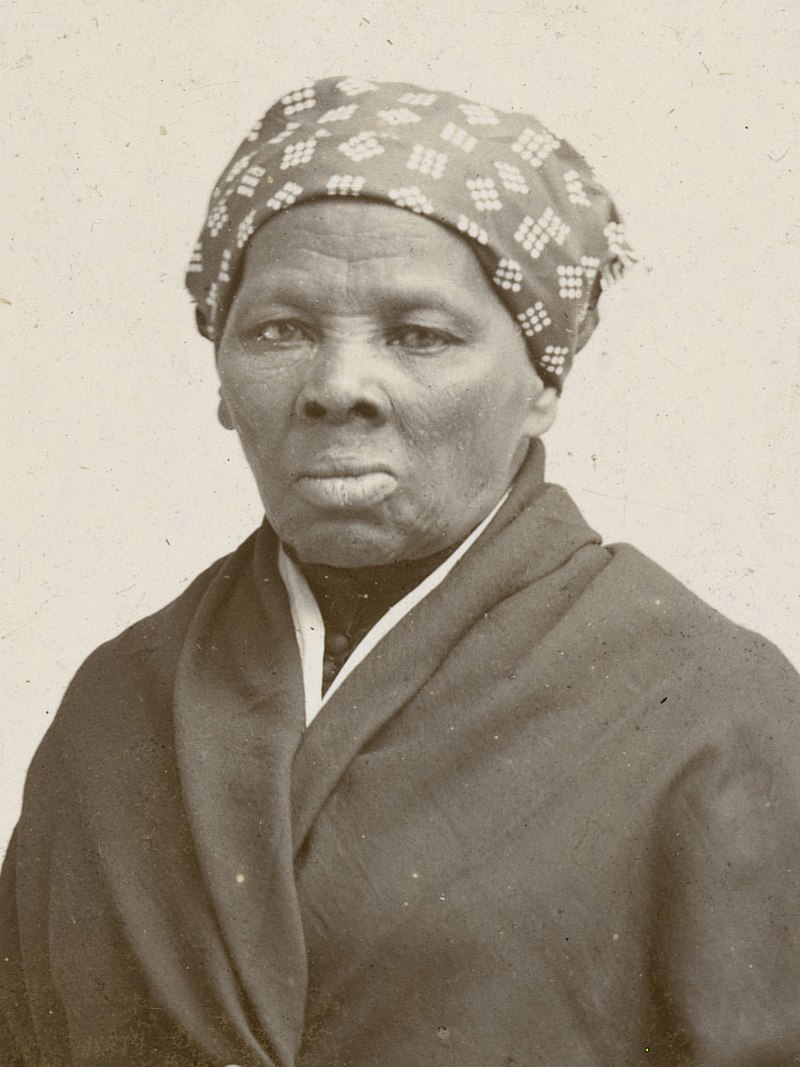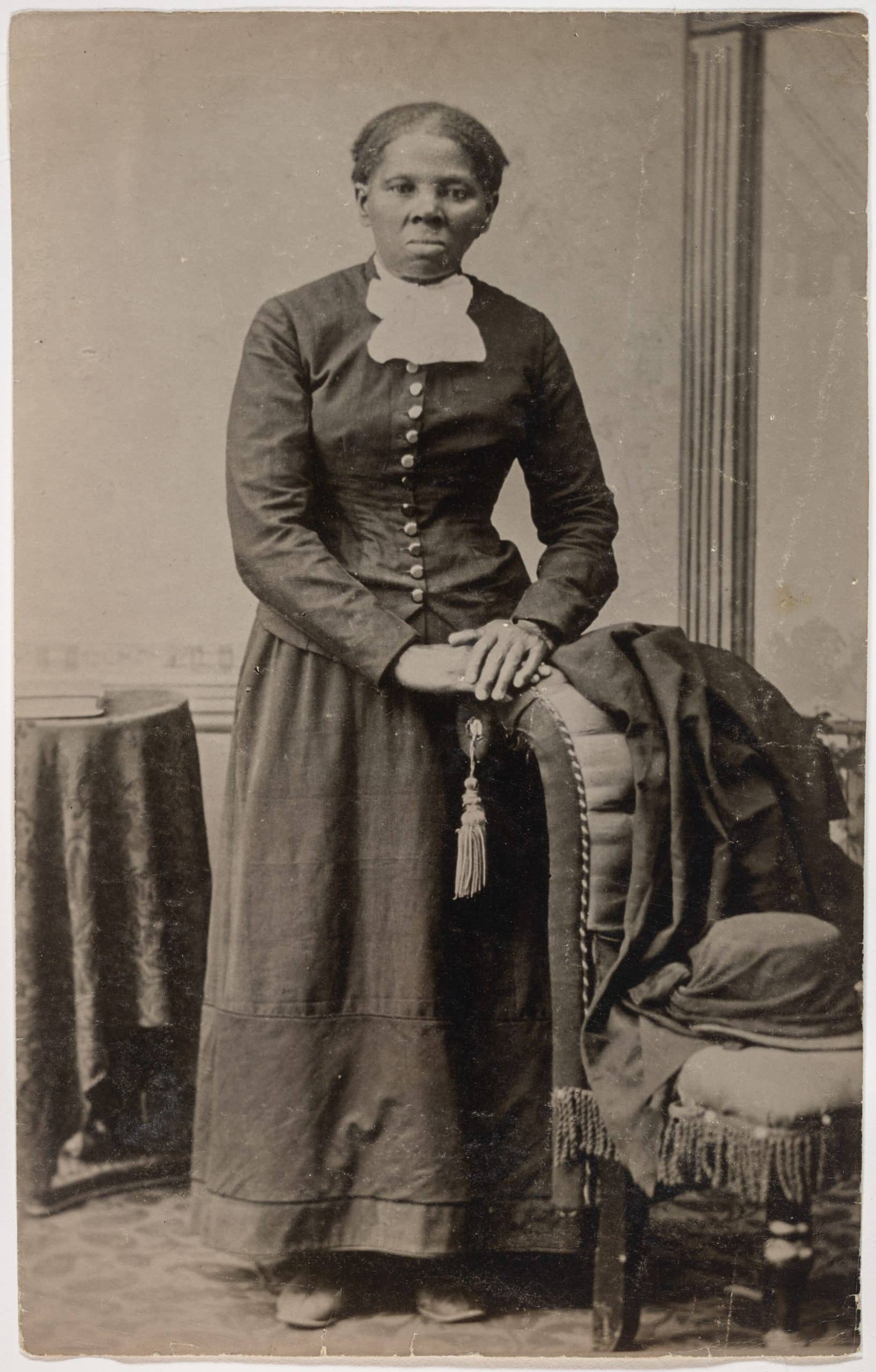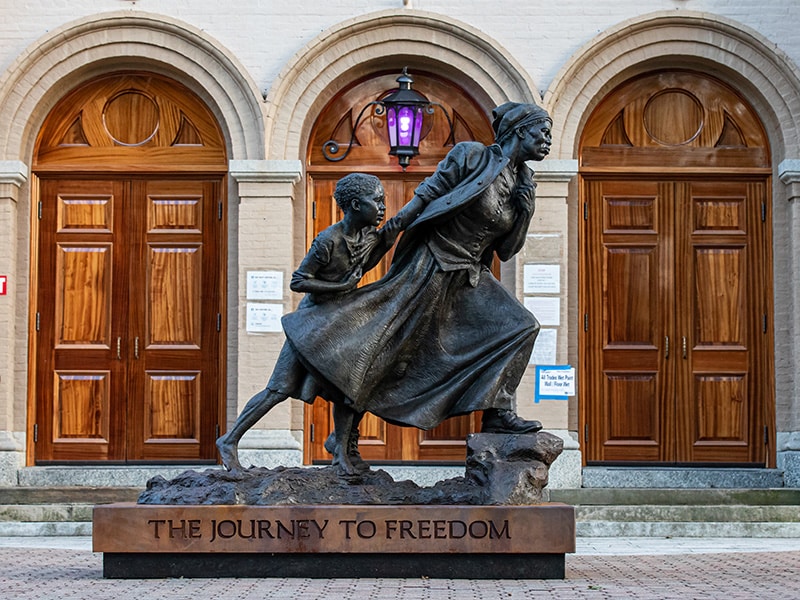Harriet Tubman’s Courageous Spirit Inspires Through The Ages
Harriet Tubman, originally named Araminta Ross, was a remarkable American. Despite enduring the harsh realities of slavery in Dorchester County, Maryland, she bravely embarked on numerous missions to rescue around 70 enslaved individuals, including her own family and friends.
Her courageous efforts were made possible through the Underground Railroad, a network of supporters and safe houses dedicated to aiding runaway slaves. Harriet Tubman becomes one of the most inspiring women who dared to fight for freedom.
Harriet Tubman – Small Look But Strong Will
Tubman, originally named Araminta “Minty” Ross, was born into slavery to parents Harriet (“Rit”) Green and Ben Ross. Rit was owned by Mary Pattison Brodess, later inherited by her son Edward, while Ben was enslaved by Anthony Thompson, who eventually married Mary Brodess. They lived on a plantation near the Blackwater River in the Madison area of Dorchester County, Maryland.
During her childhood, Tubman was often compared to the Ashanti people for her strong character traits, although there is no concrete evidence to confirm or deny this lineage.
As a child, Tubman was beaten and whipped by enslavers. At just 12 years old, she suffered a traumatic head injury caused by a two-pound metal thrown by an overseer while protecting a fellow enslaved man from punishment. In fact, the man tried to escaped but unfortunately was brought back. Harriet and a few others were forced to tie him up to be whipped. She refused and assisted him to escape and that was why she was punished and hurt.
This injury left her bleeding and unconscious. Despite her injuries, she was denied medical care for two agonizing days. She had to endure frequent and excruciating headaches, accompanied by seizures that often caused her to lose consciousness. Despite these challenges, Tubman remained remarkably aware of her surroundings even while appearing to be asleep.
After her injury, Harriet Tubman started having powerful visions and vivid dreams, believing them to be messages from God. These experiences deeply influenced Tubman’s character, strengthening her faith and shaping her into a person of unwavering conviction.
Despite her petite stature, Harriet possessed incredible strength and determination.
Escape From Slavery
In 1849, Tubman became ill again, which made her less valuable to slave traders. Edward Brodess tried to sell her, but could not find a buyer. Angered by his actions and his continued enslavement of her family, Tubman turned to prayer, asking God to change Brodess’s heart.
She said later: “I prayed all night long for my master till the first of March; and all the time he was bringing people to look at me, and trying to sell me.” When it appeared as though a sale was being concluded, Tubman changed her prayer: “First of March I began to pray, ‘Oh Lord, if you ain’t never going to change that man’s heart, kill him, Lord, and take him out of the way’.” A week later, Brodess died, and Tubman expressed regret for her earlier prayers.

Brodess’s death raised the possibility of Tubman being sold and separated from her family. His widow, Eliza, began efforts to sell the family’s enslaved individuals. Tubman refused to wait for the Brodess family to decide her fate, she decided to assert her right to freedomShe later said that “There was one of two things I had a right to, liberty or death; if I could not have one, I would have the other”.
Tubman and her brothers, Ben and Henry, escaped from slavery on September 17, 1849. Then, they was hired by the son of her father’s former owner in Caroline County, which helped hide their absence for a while.
However, their freedom was short-lived as a runaway notice was soon posted by Eliza Brodess when she offered a reward of up to US$100 each for their capture just after 2 weeks. Once they had left, Tubman’s brothers had a change of heart and decided to return to slavery because they regretted leaving his wife and children. The two men went back, forcing Tubman to return with them.
In either October or November, Tubman escaped again alone. She walked at night and always was risked to reach the safety of the North. Along the way, she sought shelter where she could, often sleeping under the open sky, guided only by the stars overhead. After about ninety miles of travel, she finally crossed into the North to freedom.
She felt relief and awe, and recalled the experience years later, “When I found I had crossed that line, I looked at my hands to see if I was the same person. There was such a glory over everything; the sun came like gold through the trees, and over the fields, and I felt like I was in Heaven.”
The Journey To Become A Heroine Of Slavers
When it came to her journey to the North, Harriet Tubman remarked, “I looked at my hands to see if I was the same person now that I was free. There was such glory over everything. The sun came up like gold through the trees, and over the fields, and I felt like I was in heaven.”

In 1849, Tubman escaped to Philadelphia, but her heart still thought of her family. She said, “I was a stranger in a strange land… My father, my mother, my brothers, and sisters, and friends were in Maryland. But I was free, and they should be free.”
Early next year, she returned to Maryland to rescue her family. She brought them and some enslaved people to freedom, making numerous perilous trips back and forth between the North and South.
Despite the dangers, she never lost a passenger on the Underground Railroad, a network she operated for eight years. She claimed, “I was the conductor of the Underground Railroad for eight years, and I can say what most conductors can’t say — I never ran my train off the track and I never lost a passenger.”
Harriet Tubman’s Later Years: Raise Her Voice For The Rights Of Women

During the American Civil War, Tubman contributed to the fight for freedom as she served as a scout and spy for the Union Army. In her later years, she became an advocate for women’s suffrage, using her voice to advance the rights of women.
Her bravery and leadership were exemplified when she led the raid at Combahee Ferry, liberating over 700 enslaved individuals. This act earned her recognition as the first woman to lead an armed military operation in the United States.
After the war, Tubman retired to her family home in Auburn, New York, where she cared for her elderly parents and continued her advocacy work. She married Nelson Davis, a former enslaved man and Civil War veteran, in 1869 and they adopted a little girl named Gertie a few years later.
Harriet Tubman welcomed anyone in need into her home with an open-door policy. To support her philanthropic work, she sold fruits and vegetables she grew, raised pigs, and received help from friends through donations and loans. Despite being unable to read or write, she traveled across the Northeast, speaking for women’s suffrage alongside Susan B. Anthony. Her legacy as a pioneer for freedom and equality continues to inspire generations.
Facts:
- Harriet Tubman wasn’t always called Harriet. She was born Araminta Ross, or “Minty” for short.
- Most of her journeys north took place on Saturday nights.
Because Sunday was a day of rest, those seeking freedom could begin their escape before official searches intensified on Monday.
- Harriet Tubman was a master of disguise.
To avoid suspicion, Harriet Tubman often dressed in disguises, sometimes as a man, even though she was petite. Once, she cleverly pretended to be an elderly woman carrying two chickens. Since people knew “Moses” couldn’t read, she pretended to read a newspaper in public to avoid being recognized. She also persuaded a lighter-skinned person seeking freedom to pretend to be a white enslaver transporting enslaved individuals.

